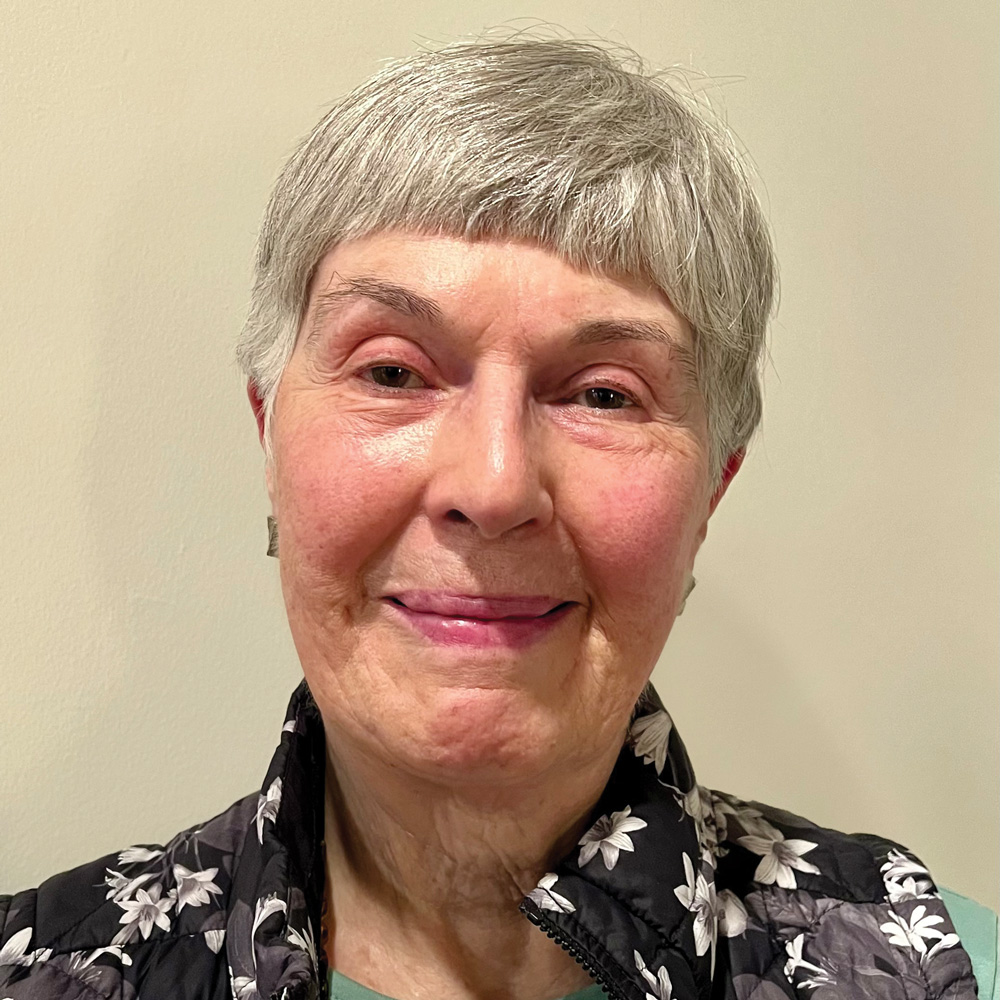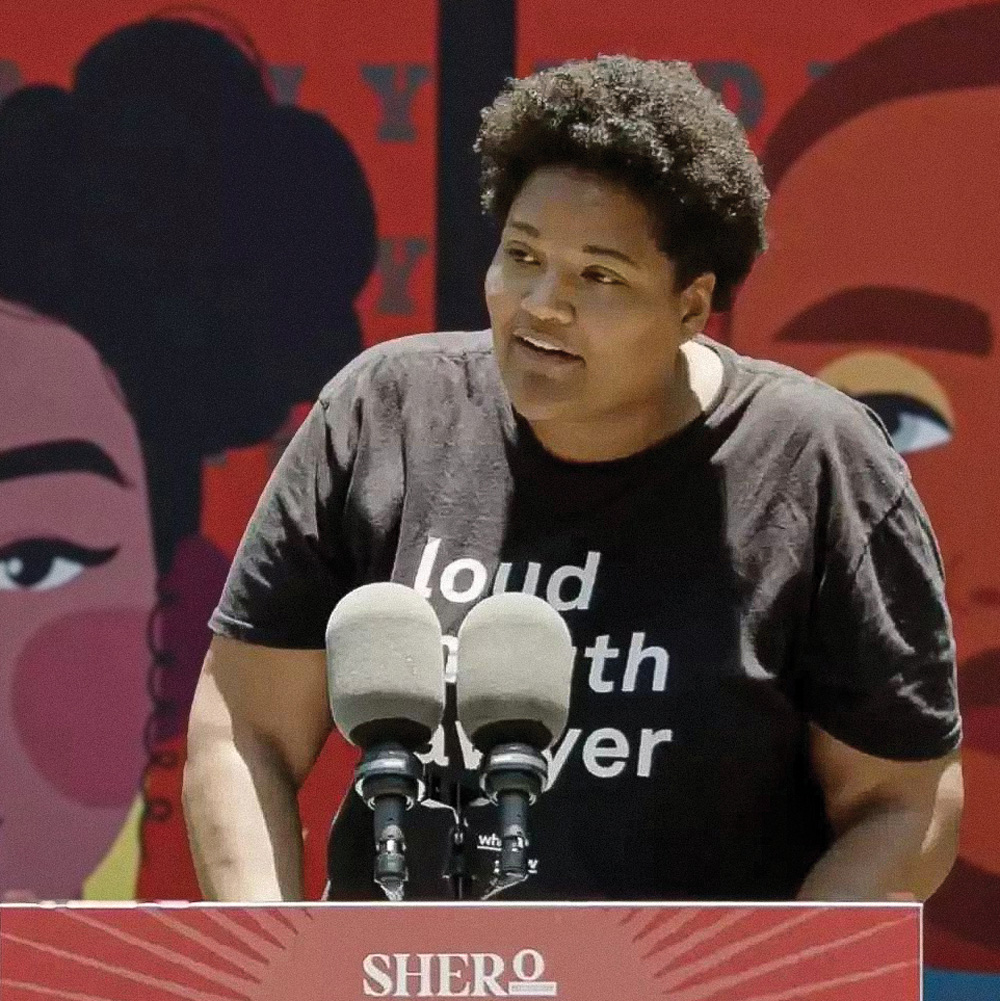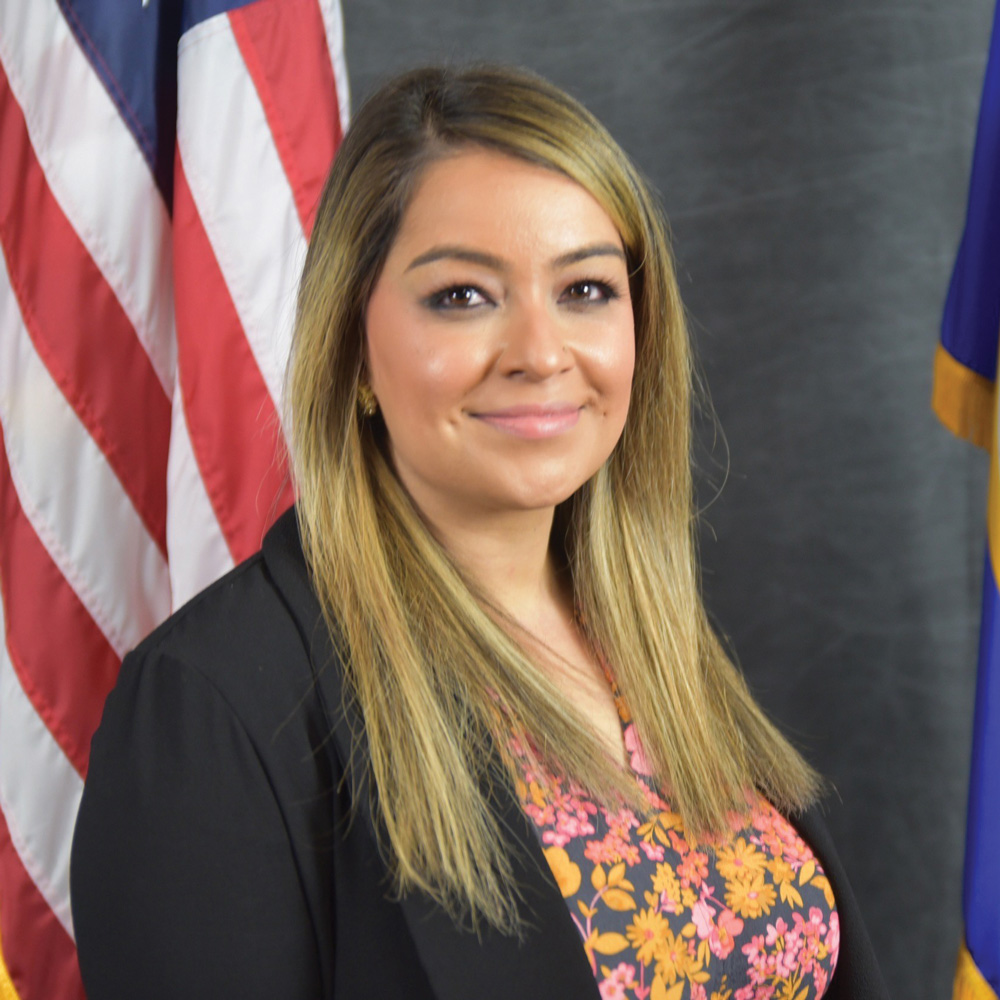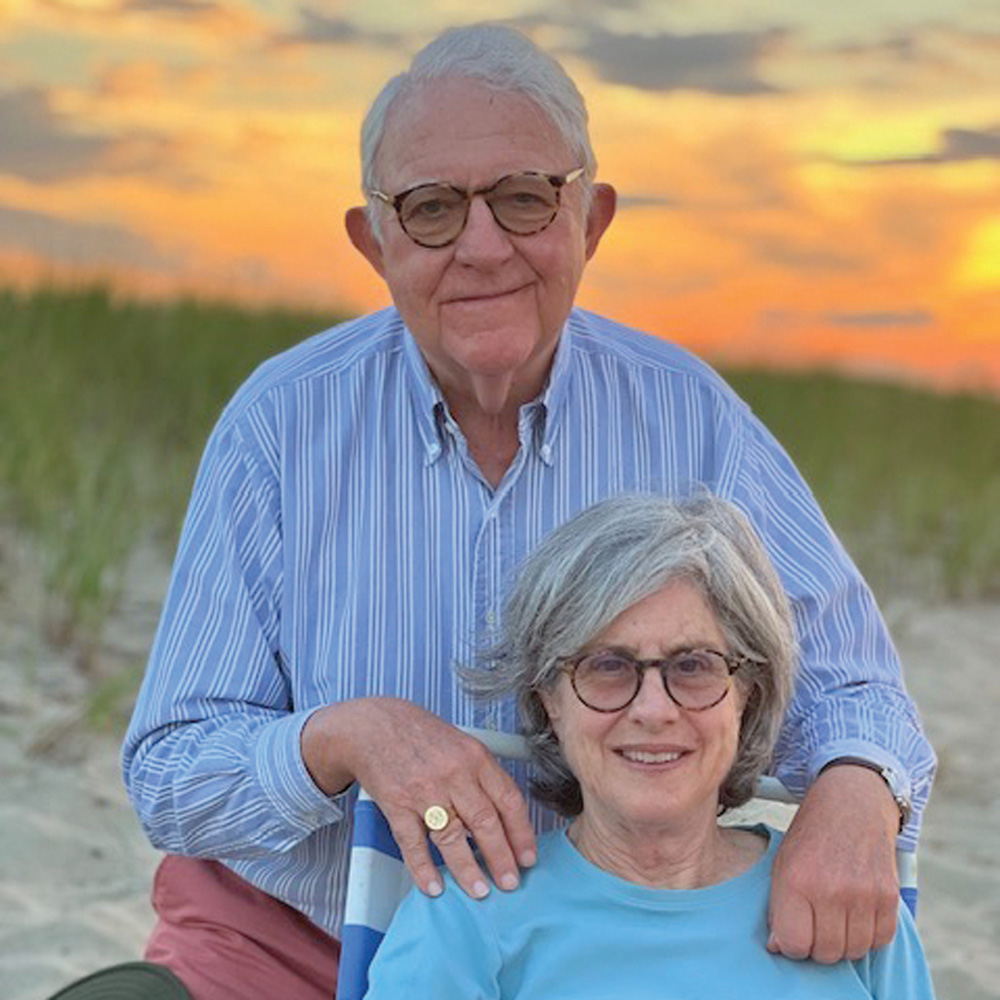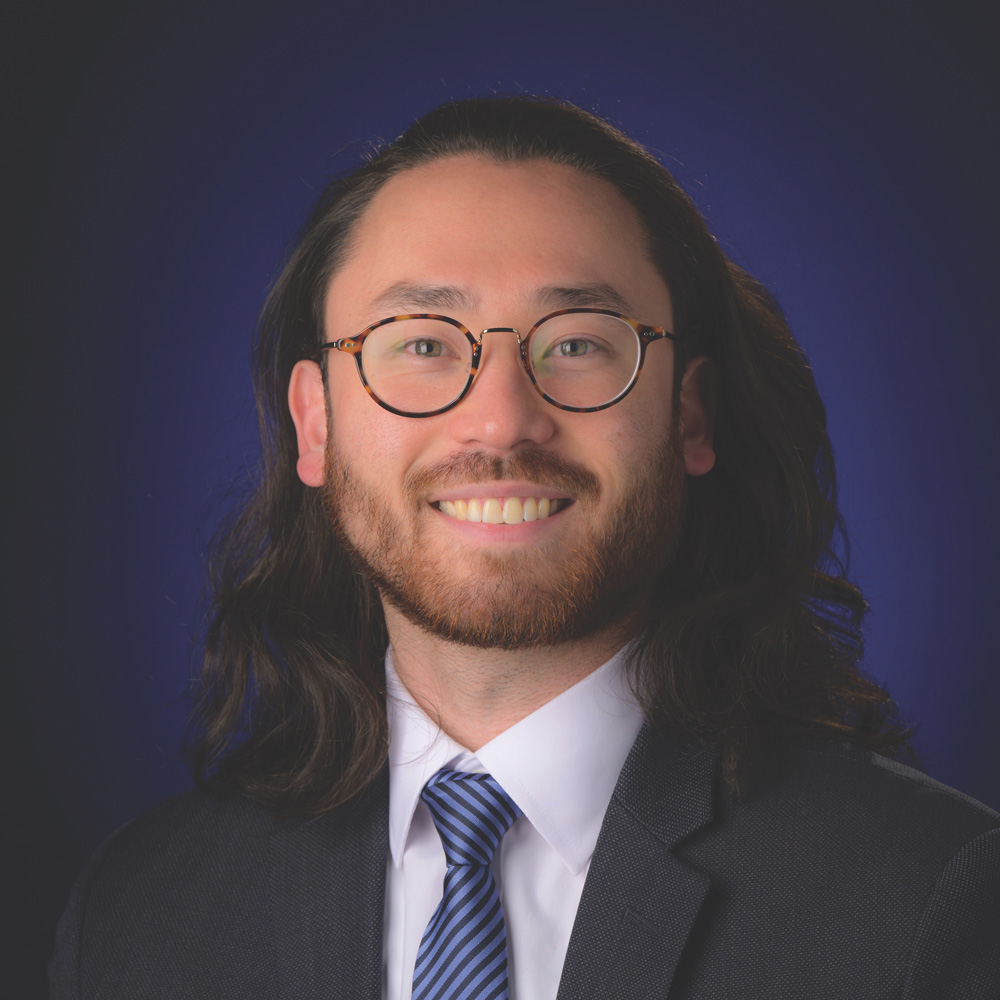Ten years after she graduated from Denison, Beverly Baker ’64 went to law school.
“It wasn’t something many women did then,” she said, “but I had long been interested in law, and when the women’s movement gained traction, it seemed possible.”
She graduated from law school as a single mother with three children. Thanks to her Denison classmate, Scott Whitlock, who she said “went out on a limb” for her, Baker landed in his Columbus, Ohio, law firm. After only a year, however, she decided to remarry — and packed up the house and kids to move to Washington, D.C., to follow love and law.
The internet was barely a twinkle in Al Gore’s eye, and cell phone service did not yet exist when Baker joined the Federal Communications Commission staff as an attorney. Only a handful of women had ever held management positions at the FCC, but Baker’s intelligence and innovative ideas — and, she said, “a general bossiness” — were hard to ignore. Within three years she was appointed a branch chief.
In 1987, just as the cell phone industry was gaining steam, Baker was appointed deputy chief of the Private Radio Bureau, the first woman to hold a deputy bureau chief position at the FCC.
At that time, FCC policy had created regional duopolies for cell phone service and called it competition. Baker thought this system did not serve consumers well. When a third potential competitor with an innovative technology came to her, she helped them navigate the regulatory minefield and withstand the opposition from existing companies to get into business. Within a few years the FCC opened up competition even further.
Also at this time, with the rise of cable television, it became obvious that the old Emergency Broadcast system needed an update. Baker oversaw the rule-making process that established the Emergency Alert System that we have today.
Baker became the first woman to ascend the ranks to a bureau chief position, and she led the Field Operations Bureau, the FCC’s oldest and largest bureau. The staff were largely engineers. “They were somewhat upset with having a female boss,” she said, “but seriously upset by the fact that I was not an engineer.” Her Denison math major saved the day. “When I let that fact out, they thought maybe I might possibly understand their work.”
Her mission was to modernize and streamline the old organization. She oversaw the implementation of a new technology that significantly reduced the number of offices and people needed for effective operations.
“I will never forget how these government employees — often unfairly maligned — completed that project, which required great precision, perfectly and on time,” she said, “knowing that when they were done, their jobs would be gone.”
In return, Baker championed her former employees, helping most of them land other jobs in the FCC or the private sector. “These were very good people,” she said, “And I wanted to do my best for them.”
When Baker retired, the FCC honored her with their Gold Medal award, its highest recognition.
Two years before Jeryl Hayes ’04 began to study law, she had an epiphany. She was working for an educational nonprofit, surrounded by people who were utterly devoted to their work.
Hayes realized that, although she believed the work was important, she lacked that intensity.
Hayes wanted that same passion for her chosen career — so she began to pay more attention to the topics that lit her inner fire.
“I recognized that I gravitated toward any conversation or situation related to gender equity, especially reproductive rights,” she said. “That became my anchor point.”
Hayes had no idea how or if she could find a job aligned with that ambition. Ignited by her goal, she pursued every opportunity.
In law school, Hayes joined a chapter of If/When/How: Lawyering for Reproductive Justice, an advocacy group for reproductive health, rights, and justice. Inner bells started ringing. She won a coveted summer internship with the nonprofit.
“That internship changed the entire trajectory of my legal career,” Hayes said. “From my first day, I knew what my future was.”
That summer, she learned to use her advocacy skills at the intersection of reproductive rights and the law. As she dived deeper into work on issues she cared about, she began to understand her calling.
Hayes pursued paid and volunteer opportunities that aligned with her passion, and created a series of career opportunities for herself. She chose to live in the Washington, D.C., area, where she found effective policy work is most highly concentrated.
Ultimately, Hayes returned to If/When/How. She is currently growing and shaping programs helping law students and legal professionals to network and champion reproductive justice.
“I’m with my dream organization in my dream job,” she said — fully aligned with her passion.
Safia Khan ’10 speaks for people who have a hard time making themselves heard. For eight years, that was victims of domestic violence.
Today, in her role as deputy commissioner and chief of staff for the Minnesota Department of Corrections, it’s everyone in the system — the incarcerated and their families, the victims and survivors, and the staff of the institution.
“It’s challenging work,” she said. “Definitely a marathon, not a sprint.”
Khan works to ensure that incarcerated people can transform their behaviors to reenter society successfully and assure there are no future victims. Surprisingly small things can make a big difference, she said. One example? Phone calls home.
Prison phone service providers charge families for calls, sometimes as much as $5 for 15 minutes. It’s a money-maker for those institutions that receive kickbacks from the providers. But many families can’t afford to keep in touch with loved ones in prison. That’s a problem, says Khan, citing research that shows strong family connections can reduce recidivism by 25%.
She supported recently passed legislation that allows prisoners to make free phone calls to their families — a common sense answer to a big problem, as she sees it, and a victory for everyone.
“Working in the criminal justice field, I see that a lot of what happens in corrections facilities is a reflection of our society at large,” she said. “If we truly want safer communities everywhere, we have to move ideas like this forward.”
Patricia Moynihan ’89 was a senior staffing the Slayter desk when she saw an opportunity to interview with the CIA. On a lark, she penciled her name into a time slot. Next stop: A yearlong immersion into the Russian language.
During her 27 years as a CIA officer, Moynihan has been deployed to some of the most precarious regions of the world, including Russia, Ukraine, and Pakistan.
A senior clandestine services officer, Moynihan has a resume that reads like a Jack Ryan novel. (Spy novels are often pretty accurate, she says.) Her first deployment was to Moscow. She has worked undercover, planned and led sensitive operations, and served in embassies.
What she can’t tell us would fill a book — maybe two or three.
In the course of her career, Moynihan briefed three presidents in person, “multiple times,” and met many other world leaders (unnamed, of course). But the work isn’t all glamorous. Assignments can be dangerous and unpredictable.
“A lot of what we do is after hours, in the night, alone, in not-nice places,” Moynihan said. “Espionage doesn’t work on a time table. If there’s a situation in your region, you have to be there. You’re ‘on’ all the time.”
Officially retired from the CIA, Moynihan continues to consult, and she’s checking a few things off her bucket list. She’s learned how to drive a Zamboni, serves Meals on Wheels, and has obtained her PI license, but recently decided she doesn’t want to do surveillance work anymore.
She’s also an EMT, president of the McLean Volunteer Fire Department, and has taken several turns as Santa for their annual parade.
“If you can work undercover in Moscow,” she said, “you should be able to be a pretty convincing Santa.”
These days, Moynihan is winding down her consulting work and ramping up her study skills for a master’s degree. Her next daring act: teaching social studies to middle and high school students.
In early 1965, the U.S. was fully committed to the Vietnam War, and the draft was imminent. Bob Howarth ’65 was considering enrolling in flight school after graduation when he ran into Mark Smith, Denison’s dean of men.
Howarth shared his plans with Smith, whose response was pithy and direct: “Are you out of your mind?”
Smith encouraged him to go to law school — and set him on an entirely new trajectory.
After law school, Howarth joined the Ohio Air National Guard as a JAG officer. In his private practice, he represented National Guard defendants in the litigations arising out of the Kent State tragedy. He also got to know Gov. Jim Rhodes, who later asked him to become his executive assistant, launching Howarth into his stint of public service.
Howarth went on with his career as senior vice president with Huntington National Bank and as a partner in a national law firm, followed by establishing his own firm, while he remained active in the public sphere. His accomplishments include sitting on Ohio’s Board of Regents and Ohio’s Board of Bar Examiners, serving as executive assistant to the Columbus mayor, and chairing the capital city’s economic advisory committee. Howarth also served on boards for Shawnee State University, the Capital Area Humane Society, Columbus Children’s Hospital, and the Columbus Academy.
In tandem with his civilian life, Howarth continued to serve in the military for 33 years before retiring from the United States Air Force Reserves and the Ohio Air National Guard with the rank of brigadier general.
“My wife jokes that I could never keep a job,” Howarth said. “But I’d say I’ve been blessed to have experienced so much.”
Justin Weiss ’14 never takes for granted his walk along the White House colonnade between the West Wing and the Eisenhower Executive Office Building.
“It’s the opportunity of a lifetime,” said Weiss, director of communications for the White House Council on Environmental Quality. “It’s hard not to pinch yourself and remember, ‘This is where I work.’”
He has Denison and, more specifically, two old classmates to thank for helping him land in Washington, D.C.
Weiss, who majored in French and communications, didn’t have firm career plans after graduation. He thought of teaching English in a French-speaking country.
But Denison classmates Caleb Randall-Bodman ’14 and Adam Safer ’14 convinced the Cleveland native to move to the nation’s capital and become their roommate.
Weiss spent a few months bartending before finding work as an analyst at a government relations firm and transitioning to public relations. He made the jump from the private sector in 2019, becoming a communications director in the U.S. House of Representatives for Congressman Adam Smith and later joining NASA as its deputy press secretary.
In 2023, Weiss joined the White House as associate director of infrastructure communications before he moved to the Council on Environmental Quality. The CEQ advises the president and develops policies on climate change, environmental justice, federal sustainability, public lands, oceans, and wildlife conservation, among other areas.
Weiss credits Denison for teaching him to become a problem solver.
“You can never prepare perfectly for anything,” Weiss said. “You can’t script out every single scenario for a situation. At Denison, I learned to become better at facing challenges head on, to think more critically not necessarily of what is asked of you, but what is needed for an answer.”
Elizabeth Ellis ’97 never thought of attending law school during her time on The Hill.
A second-generation Denisonian, she found English professors fostered her love of writing and research. Lisa McDonnell, Fred Porcheddu-Engel, and Dominick Consolo were all significant influences.
Ellis mulled careers in academia, public relations, and marketing. But as she spent her first year after Denison caring for her grandmother, she thought about the adaptability of her liberal arts education.
“The research and writing I had done at Denison had trained me perfectly for a legal career,” said Ellis, who ultimately graduated from University of Dayton School or Law.
After two decades working in prosecutor’s offices, Ellis was appointed a judge for the Montgomery County Common Pleas Court by Ohio Gov. Mike DeWine in 2023. She must win election in November 2024 to retain the seat for the term expiring in 2027.
“In law, you have to read and think carefully, and everything I did at Denison prepared me for that,” Ellis said. “I started at Denison thinking I was going to be pre-med, and then I took a Shakespeare course with Dr. McDonnell and I was hooked.”
Ellis likes to tell the story of how she and her mother, Shirley Raizk Ellis ’64, both took literature classes from Consolo.
While Ellis made other college visits, she knew from an early age Denison was in her future.
“My mom took me to one of her reunions when I was about 5 years old,” Ellis recalled. “I remember thinking, ‘This is the place for me.’


